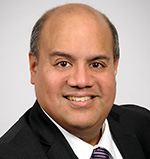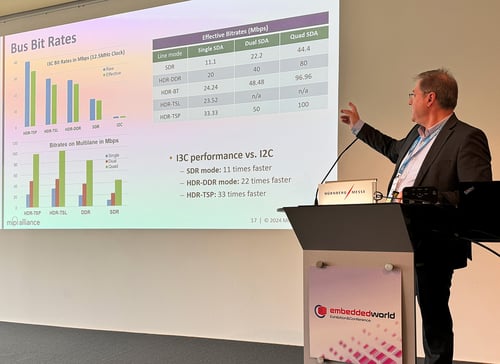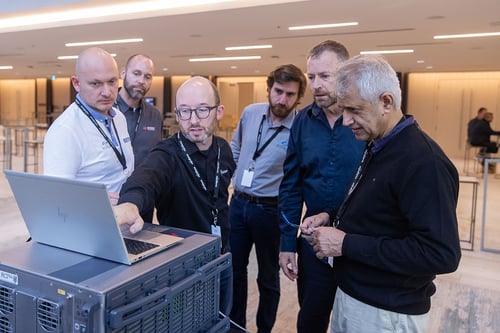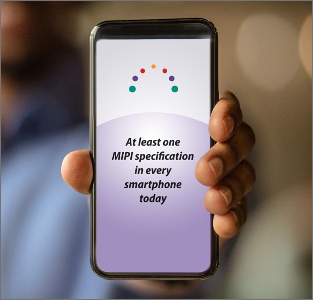1 min read
Latest Developments within MIPI Automotive SerDes Solutions (MASS)
![]() MIPI Alliance
:
28 September, 2021
MIPI Alliance
:
28 September, 2021
- Resources
- Conference Presentations
MIPI DevCon 2021

James Goel |

Rick Wietfeldt |
Download the presentation »
View the session »
Presented by James Goel, MIPI Technical Steering Group Chair, and Rick Wietfeldt, MIPI Alliance Board of Directors, Security Working Group Co-Chair
This session brings you up to speed on all the latest developments within MIPI Automotive SerDes Solutions (MASS) – a framework that provides a full-stack, end-to-end sensor/display-to-ECU solution for autonomous driving and ADAS systems that leverage existing MIPI CSI-2®, DSI-2℠ and VESA eDP/DP protocols running over MIPI A-PHY℠. The presentation also explains how recent developments make it easier for you to integrate MIPI A-PHY into your next automotive E/E architecture and how, through A-PHY's adoption as an IEEE standard, it can be accessed for evaluation without MIPI membership.
In addition, the presenters discuss how recently released MIPI Camera and Display Service Extensions (CSE and DSE) and their associated protocol adaptation layers (PALs) work together to embed functional safety and security enablers natively at the "edge" – ultimately within the sensor, display and ECU components themselves.
Presenters
James Goel has a bachelor's of applied science (B.A.Sc) in electrical engineering from the University of Waterloo in Canada and is a licensed professional engineer (P. Eng.) in Ontario, where he has practiced for the last 30 years. James has spent his career developing designs and technical standards for artificial intelligence/machine learning, video, audio and interface solutions in both engineering and management positions. He's been with Qualcomm Technologies Inc. for the last nine years after it acquired his previous company.
Rick Wietfeldt is a senior director, technology, at Qualcomm Technologies Inc. in San Diego. He joined Qualcomm in 2007 and established the Advanced Connectivity Technology office responsible for the standards developments organizations (SDO) that drive mobile interface standards.
He has authored numerous publications and been awarded numerous patents in mobile device architecture and operation. Prior to joining Qualcomm, Rick worked at Texas Instruments in Dallas from 2003-2007 as the OMAP CTO running the U.S. CTO office and helping position OMAP as the workhorse processor of the early smartphone era. Rick received his bachelor of science and master's degrees in electrical engineering from the University of Toronto, and his doctorate from York University in Toronto.






